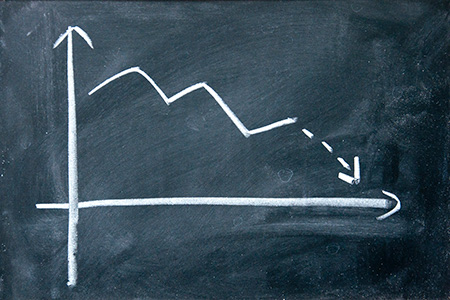One of the apparent advantages of cash is that its value does not fluctuate with the stock market. As such, some investors may try to avoid investing in equities (shares) in volatile markets altogether. However, doing so risks missing out on strong investment growth over the long term. This is why we typically recommend keeping 3-6 months’ worth of living costs in easy-access cash savings, to tide you over during an emergency. After this, extra savings are typically better placed into other assets which offer a higher return – such as shares or funds investing in them. However, how can investors approach shares when the markets are fluctuating? What if you have a large sum of money ready to invest now – should you wait until things calm down, commit the entire amount all at once or drip feed it into your portfolio?
The landscape since Covid-19
Since the global pandemic outbreak in 2020, the world has faced uncertain times and stock markets are likely to fluctuate for some time. This has been made worse in recent weeks by Russia’s invasion of Ukraine. However, bear in mind that keeping most of your wealth in cash at this time may not be as safe as it seems, due to the rising cost of living. If inflation is 6.2%, as it was in February, but your savings account only offers 0.25% interest, then you stand to lose 5.95% in real terms. Waiting for a calmer time to invest may mean you could be waiting a while. During that time, you could be investing and generating long-term growth.
Weigh up your needs
Before investing, it is important to ask yourself how long you want to invest, and why. Are you looking to save enough to fund retirement in about 30 years, or are you looking to build up a deposit for a house within the next 5 years? If the former, then you have more time for your investments to grow and weather stock market volatility in the short term. For the latter, however, you may not have time for your deposit portfolio to recover if markets take a dive. There is also the important factor of your risk tolerance. Be honest with yourself and ask: “If my investments plunged 20% tomorrow, what would I want to do about it?” If you know you’d want to pull the money out, then “defensive” assets may be more suitable to you than shares.
Identify suitable assets
With these filters in mind, your Financial Planner can assist you with sifting through potential investments for your portfolio. Broadly, asset classes include shares, bonds, property and cash. However, variations exist within these categories which may be more/less suitable to your needs. For instance, if your focus is to take income in a few years, then you might concentrate your portfolio on a mixture of bonds and lower-risk, dividend-paying shares.
Dealing with a lump sum
Many investors commit capital gradually into a portfolio (e.g. an ISA or pension) on a monthly basis, as their salary comes in. This can make it more tolerable to invest in volatile markets, since investors know that past contributions have already received investment growth. However, investing a lump sum can bring up high anxiety, especially in volatile markets.
Once again, your time horizon is key. If you commit a lump sum and do not need the money for 30 years, then with a good strategy it is likely to grow (even if it may encounter uncomfortable bumps along the way, with the stock market). If you may need the money within 5 years, then you may want to invest the lump sum in lower-risk assets.
You can also consider drip feeding the lump sum into a portfolio i.e. moving it gradually from cash into other investments over, say, a 12-month period. Whilst not always the most efficient option in the long term, this can mitigate the danger of investing a lump sum and then seeing its value fall if the market takes a downward turn.
Focus on the long term
One sensible way to deal with volatility is to stay invested and try not to pay attention to short term fluctuations in the stock market. Avoid logging into your portfolio too much and rebalance things once/twice per year with your financial planner to keep your asset mix in line with your investment strategy. Remain calm, stay the course and try not to time the markets based on what is happening in the news, as this often ends up making things worse.
Here, you need a well-diversified portfolio and the right investment strategy, from the outset. This can be difficult to craft on your own, so it can pay to seek professional financial advice. Your Financial Planner can also act as a good sounding board for your investment ideas and concerns, helping you refrain from impulsive decisions which could hurt your portfolio.
Invitation
If you would like to discuss your investments, then we would love to hear from you. Get in touch with your Financial Planner here at Vesta Wealth in Cumbria, Teesside and across the North of England.
Reach us via:
t: 01228 210 137
e: [email protected]
This content is for information purposes only. It should not be taken as financial or investment advice. To receive personalised, regulated financial advice regarding your affairs please consult your Financial Planner here at Vesta Wealth in Cumbria, Teesside and across the North of England.

